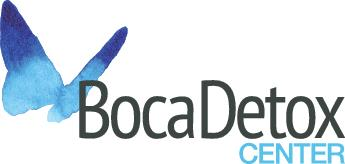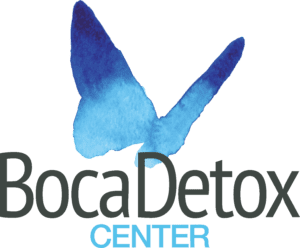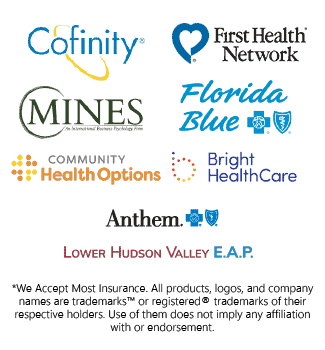Choosing to participate in local addiction treatment can allow individuals to take advantage of family support, which can be crucial to fostering a sense of belonging, accountability, and encouragement. Moreover, involving family members in the recovery process can help restore strained relationships, reduce the risk of relapse, provide education, and create an encouraging environment that promotes long-term sobriety. Families can also help their loved one make use of their learned coping skills and engage in healthy communication, which can be beneficial for both their recovery and overall mental wellness.
If you or a loved one is struggling with addiction, it’s important to seek professional help to aid in the recovery process. Boca Detox offers medical services for withdrawal from a wide variety of toxic and habit-forming substances, such as opioids, benzodiazepines, stimulants, and alcohol. Contact us today to learn more about our evidence-based detox programs and medication-assisted treatments.
The Impact of Addiction on Family Members
Addiction can have a significant impact on family members, including spouses, parents, children, siblings, and others. (1) The effects of addiction on family members are often emotional, social, or financial.
Family members of people struggling with addiction often experience a wide range of emotions, including anger, guilt, sadness, and shame. They may feel as if they failed to help their loved one or blame themselves for their condition. They may also suffer from anxiety and depression and worry about their loved one’s safety and future. Sometimes addiction has a physical impact on family members if the person struggling engages in abusive or violent behavior.
Addiction can also interfere with family dynamics and cause stress and conflict. Family members might argue about how to handle the situation, leading to relationship strain. Those suffering from addiction may also neglect their responsibilities, and family members may feel abandoned and unsupported as a result.
Finally, sustaining an active addiction can be expensive, and family members may find themselves having difficulty meeting financial obligations due to their loved one’s substance use. They may also be compelled to cover their medical bills, legal fees, and other addiction-related costs.
The Benefits of Family Support in Addiction Recovery
Family support can be a vital component of local addiction recovery, and can have many benefits for both the individual and their loved ones.
Benefits of Family Support in Recovery Include:
- Encouragement and motivation, helping the individual stay focused on their goals and committed to their sobriety.
- Improved communication, contributing to healthier relationships.
- Increased accountability for the individual, including their actions and choices, which can be crucial in maintaining sobriety.
- Reduced stress, providing a sense of stability and support for both the individual and their family members.
- Improved mental health for all involved, by participating in therapy and support groups that provide a safe space for discussion.
- Strengthened family bonds and renewed trust, leading to stronger, healthier relationships long term.
The Role of Family Therapy in Local Addiction Recovery
Family therapy can be an essential component of addiction recovery, as it focuses on the whole family and the ways in which addiction impacts those involved.
Key Roles of Family Therapy Include:
- Addiction Education—To help family members understand the ways in which substance use affects their loved ones and relationships.
- Healthier Communication—To reduce misunderstandings and conflict and improve relationships.
- Emotional Support—To help families better cope with challenges and become more resilient.
- Setting Boundaries—To eliminate enabling and dysfunctional forms of support, which can be essential for encouraging sobriety and promoting long-term recovery.
- Addressing Underlying Issues—To promote discussion of issues such as trauma, mental health conditions, or relationship problems and identify ways of healing.
Relapse Prevention—To help identify triggers and develop strategies to prevent relapse and promote ongoing recovery.
Strategies for Families To Support a Loved One in Recovery
Supporting a loved one in recovery from addiction can be challenging, but there are many ways in which families can provide effective support.
Strategies for Supporting a Loved One Include:
- Educating yourself on substance use will help you better understand what your loved one is going through and how you can effectively support them.
- Ensuring your loved one understands that you are there for them and offer emotional support throughout their recovery.
- Encouraging your loved one to express their feelings and listen without being reactive.
- Being patient and understanding with your loved one as they navigate the ups and downs of recovery.
- Attending support groups such as Al-Anon or Nar-Anon so you can connect with others who are going through similar experiences.
- Setting limits on your own behaviors to avoid enabling your loved one’s addiction or failing to enforce consequences for breaking rules.
- Encouraging your loved one to embrace healthy habits, such as exercise, good nutrition, and meditation, to support their physical and emotional well-being.
- Celebrating milestones in recovery to provide your loved one with positive reinforcement and encourage continued progress.
Addressing Family Communication Issues in Addiction Recovery
Communication problems often emerge within families affected by addiction, making it challenging for individuals to receive the necessary support. In addition to seeking professional treatment, there are several strategies that loved ones can implement on their own.
The importance of healthy communication related to addiction cannot be understated. (2) Improved communication within the family can be achieved by practicing active listening, asking questions, and encouraging others to do the same. Furthermore, it is crucial to avoid blaming or judging your loved one for their addiction, and instead, express how their actions have impacted your family and yourself.
It can be extremely beneficial to hold family meetings, set an agenda and ground rules, and provide a structured setting for everyone to share their feelings. To ensure these meetings are positive and productive, express genuine concern for your loved one and discuss ways that those involved can improve communication and work toward healing relationships.
Consider staging an intervention, which is a structured family gathering often arranged and led by a trained interventionist, typically a psychologist, mental health counselor, or addiction professional. (3) During this meeting, family members are allowed to express themselves openly and honestly while refraining from blaming or passing judgment. The purpose of this meeting is to make your loved one understand they have a serious problem and that undergoing detox and intensive treatment is needed to help them achieve and sustain sobriety. At this time, family members can also inform the person of the consequences they may face if they do not seek professional help.
How To Navigate Relapses & Continuing Care With Family Support
Dealing with and recovering from relapses can be challenging for both the individual and their family members. However, it’s important to understand that relapse is common, and in fact, relapse rates for drug use are similar to those of other chronic medical illnesses. (4)
Experiencing a relapse does not mean total failure or that recovery is impossible. It’s an opportunity to learn about and revisit discussions about cravings, triggers, and other factors that may have compelled them to recommence using drugs or alcohol.
It’s crucial to remain supportive and avoid blaming or judging your loved one for their relapse. Offer encouragement and remind them of their progress up until this point. Also, encourage them to continue with their treatment and support them in seeking additional help if needed. This may involve revisiting their treatment plan and making adjustments to ensure their needs are being met.
Reach Out to Boca Detox Today To Learn More
Local addiction treatment can make it easier for family and friends to provide support and participate in a loved one’s treatment. This can be especially important for individuals whose addiction has made them withdraw or feel isolated from their support system. In addition to medical detox, Boca Detox provides referrals to long-term programs that consist of clinically proven treatments that include individual and family therapy, relapse prevention, co-occurring mental health disorders, and more. Contact us today for a free, no-obligation health insurance benefits check and learn more about our streamlined admissions process and safe, comfortable detox process.

Reviewed for accuracy by:
Susan Shirley
LMHC
Serving as the Inpatient Clinical Director at Immersion Recovery Center, Susan will work directly with staff members, clients, and family members to ensure the clinical program remains as effective and individualized as possible. Susan is no stranger to the fields of behavioral health and addiction. She has over 25 years of experience, working in an inpatient setting, an outpatient setting, acute stabilization and nearly all other settings in the realm of addiction recovery.





















